M Y A N M A R
Mingalabar!
is a greeting word in Myanmar means welcome and a wish for good fortune.
Myanmar (formerly known as Burma) is one of the most magical and undiscovered destinations in the world, a golden land of breathtaking beauty and charm that is steeped in fascinating history and traditions, the land of faith, almost 90% of the population practicing Buddhism and also is the most religious country in the world. A country rich in jade, gems, oil, natural gas and other mineral resources.
Myanmar was under the rule of an oppressive military junta from 1962 to 2011. Under reforms introduced since 2011 by a new government, Myanmar has unblocked international news websites and YouTube. This year 2016, Myanmar swore in its first democratically-elected government in over 50 years of military domination. Modern-day now, travel conveniences, such as mobile phone coverage and internet access, ATM, credit card are now common. Now in Myanmar we can see a lot of English friendly (menu on the restaurant, western name/brand, signage). Everywhere in Myanmar, you’ll encounter men wearing skirt-like “Longyi” the most impressive national costume of the Myanmar, represents for the unique cultural and social status of the country. And everywhere in Myanmar you’ll see Burmese applied “Thanaka” to their face. Thanaka (the secret to Burmese beauty), it’s a natural sunscreen, lightens the skin, and even works against acne, ageless beauty and flawless skin. The Burmese have used Thanaka to protect and beautify the skin for over 2,000 years.
Myanmar is very safe in terms of personal security: incidents of crime against foreigners are extremely low and Yangon is considered to be one of Asia’s safest large cities, with no areas that need to be avoided. Burmese are the friendliest people you’ll ever meet, they are friendly, welcoming honest and helpful.
Only one thing you need to take caution in Myanmar: All the people will give you BIG smile. 😀
Shwedagon Pagoda – is the oldest Buddhist temple in the world, at over 2500 years old and the most sacred Buddhist pagoda in Myanmar.
Shwedagon Pagoda is covered with hundreds of gold plates and the top of the stupa is encrusted with 4531 diamonds totaling 1800 carats; the largest of which is a 72 carat diamond. It is clearly one of the wonders of the religious world. No trip is complete to Myanmar without visit to Shwedagon.
Sunrise and Sunset at B A G A N
Bagan in central Burma is one of the world’s greatest archeological sites. Bagan’s spectacular plain has more than 2,200 pagodas, temples, monasteries and other structures on it, most left over from the city’s heyday between the 11th and 13th centuries, when it was the capital of the regions that went on to form modern Myanmar.
We start our trip by visiting Bagan. To reach Bagan from Yangon will take about 13 hours by car or 1hr 20 min by flight. Domestic flight is a bit expensive, the cheapest will cost about US$100 for one way per person.
Before we could exit the airport, security will not let you leave the building without purchasing the Bagan Archaeological Zone pass – 25000 Kyat or US$22.
Sunrise in Bagan is magnificent!
One will never enough, so we tooka lot of picture!
Flying over the unique Bagan area, you will be astounded and amazed by the beauty and diversity of the temples and stupas.
The Balloons are only operate from October-March. Rate is not cheap, US$300 per person. Too bad we decided not to join the tour as it’s over our budget.
Shwesandaw Pagoda in Bagan city is one of the famous pagoda for tourist attraction to view sunset and sunrise. Most of our picture was taken from Shwesandaw Pagoda.
https://www.flickr.com/photos/vibranze/31385753040/in/dateposted-public/
A very beautiful sunrise layer of mist rises across the Bagan in the early morning and creating a mystical like atmosphere.
After sunrise at 06:45 all the hot air balloon is setting off to the sky.
Horse cart in Bagan is a traditional mode of transportation and probably the best way to discover Bagan.
Not enough for just sunrise, we were back again for sunset with the same magnificent view.
Bagan is the #1 attraction in Myanmar and attracts many tourists. Especially sunrise and sunset from one of the pagodas. The growing number of local and foreign visitors to Bagan – has more than doubled since 2011.
Watching the sunset from the top of a pagoda is one of the main things that attracts tourists to Bagan and is regularly cited as a “must-do” when visiting Myanmar.
Bagan has more than 3000 ancient pagodas and temples, of which five are particularly popular for watching sunsets: Shwesandaw, Thitsarwady, Pyathetgyi, Shwenanyindaw and Oah Chan Pae Kone.
After a 6.8 magnitude earthquake strucked central Myanmar in August 2016 and destroyed hundreds of temples at the ancient site, Ministry of Tourism has laid out a number of guidelines as a warning to tourist not to enter any close-off building, not to approach damaged structures, not to pick up pieces of debris that have fallen to the ground.
Burmese Monk and Nun
Buddhism in Myanmar is predominantly of the Theravada tradition, almost 90% of the population practicing Buddhism and also is the most religious country in the world.
https://www.flickr.com/photos/vibranze/31572929622/in/dateposted-public/
Every Buddhist boy in Myanmar (Burma) between the age of 7 and 13 is expected to enter the monastery as a novice monk for a period of a few weeks to several months
In Myanmar, children as young as seven years old have dedicated their lives to becoming Buddhist monks
Young novices are allowed to play football, watching TV, playing video games and having fun, which is great to see, because they are just a normal kids. On the other hand, the life of the monks can be very tough: sleeping in a dormitory, waking up very early, washing with cold water, studying a lot and always strict discipline.
A woman should not touch a monk in any way, even to hand him something. Monks may not touch women, nor take anything from their hand.
It’s customary for a male in Myanmar to enter a monastery twice in his life, as boys and as men. Once as a Samanera, a novice monk, between the age of 10 and 20, and again as a Hpongyi, a fully ordained monk, sometime at the age of 20. Some might remain a monk for just a few days, while others stay for life.
Many of the children who train to be monks come from poor families who see this way of life as a way to get their kids out of poverty. Free education, as they can learn mathematics and English and also can have a proper meal.
Buddhism in Myanmar is predominantly of the Theravada tradition, practiced by 90% of the country’s population.
Buddhist monk praying inside a pagoda, Bagan.
Monks hold the highest status in the society of Myanmar.
Prayers and meditation at 4am at Shwedagon.
Monks receive two meals per day, breakfast and lunch and they are not allowed to eat after 12:00 noon.
Prayers and meditation at Shwedagon.
Often, they have left home at an early age to live in the nunnery, where they spend their time in service to the community, collecting alms, teaching, studying and meditating.
Girls and women enter the monastic life, shave their heads, take ordination vows and practice meditation and reading scriptures just as male monks do.
Morning prayer at 04:00am at Shwedagon Pagoda.
People of Myanmar
Everywhere in Myanmar, you’ll encounter men wearing skirt-like “Longyi” applied “Thanaka” to their face and will meet a lot of kindness.
“Longyi” the most impressive national costume of the Myanmar, represents for the unique cultural and social status of the country. Longyi is a sheet of cloth widely worn in Burma. It is approximately 2 meters (6.6 ft) long and 80 centimeters (2.6 ft) wide. The cloth is often sewn into a cylindrical shape. It is worn around the waist, running to the feet.
Street food seller wearing Longyi.
Morning prayer at Shwedagon Pagoda.
Four beautiful ladies with colorful Longyi.
Market at Bagan.
Thanaka
Thanaka, the secret to Burmese beauty, it’s a natural sunscreen, lightens the skin, and even works against acne, ageless beauty and flawless skin. The Burmese have used Thanaka to protect and beautify the skin for over 2,000 years. Thanaka is an all natural powder made out of hand selected barks from the Burmese Thanaka Tree. Myanmar Thanaka powder has been regarded as the beauty and the secret of healthy skin of Myanmar women.
How to use Thanaka powder : mix the Thanaka powder with the water into a thick paste. You can add more powder if you want a thicker consistency.
A very beautiful students with Thanaka applied to their face.
In November 2015 UNESCO and Panasonic Corporation signed a project agreement for Myanmar to promote educational support aimed at sustainable development for the next generation of young people living in the vicinity of the Ancient City of Bagan. Donation of 500 units of “Eneloop solar storage” to around 40 schools around the Ancient City of Bagan. In Myanmar, 68% of its population is said to have no access to electricity. Young people who live in off-grid communities around the Ancient City of Bagan are suffering from an educational disadvantage as they have no other choice but to study in a poorly-lit classroom, with limited daylight hours. Through this donation, Panasonic will support the development of a school environment where young people can study anytime of the day under safe and bright lights.
He is a postcard seller. Usually they will sell one post card for a price of 1000 Kyat (US$0.75).
A nice postcard and handmade bangles seller.
Everywhere you go in Myanmar, all the people will great you with their greatest smile!
Fruit sellers with Thanaka. Mount Popa was seen in the background.
Mango seller at Yangon circular train.
Very nice lady, she is a souvenir seller outside the temple, and she volunteered herself as our guide.
Lacquerware making process.
They are a post card seller near our hotel, having so much fun playing together while there is no customer.
She is from Kayan Tribe. Girls first start to wear rings when they are around 5 years old. Over the years, the coil is replaced by a longer one and more turns are added. The weight of the brass pushes the collar bone down and compresses the rib cage. The neck itself is not lengthened; the appearance of a stretched neck is created by the deformation of the clavicle.
Women of the Kayan tribe are well known for wearing neck rings, brass coils that are placed around the neck, appearing to lengthen it.
https://www.flickr.com/photos/vibranze/32009610492/in/photostream/
The rings protected women from becoming slaves by making them less attractive to other tribes. It has also been theorized that the coils originate from the desire to look more attractive . Or the coils might be meant to protect from tiger bites.
Renting an e-bike is a MUST in Bagan and is one of the must-do activity while you’re in Bagan.
Public transport in Bagan.
Sunset view in Bagan from Hotel Thande.
Heho view from above. Heho is a small town in Kalaw Township, Taunggyi District, Shan State of Myanmar. It is the primary air gateway to tourist areas such as Inle Lake.
There are many rumors to as why motorbikes are banned in Yangon. Only government-related officials may use motorcycles in the Yangon municipal area. They are not allowed to carry passengers and must wear motorbike helmets.
Shwedagon Pagoda.
All Photographs taken by © Teh Han Lin
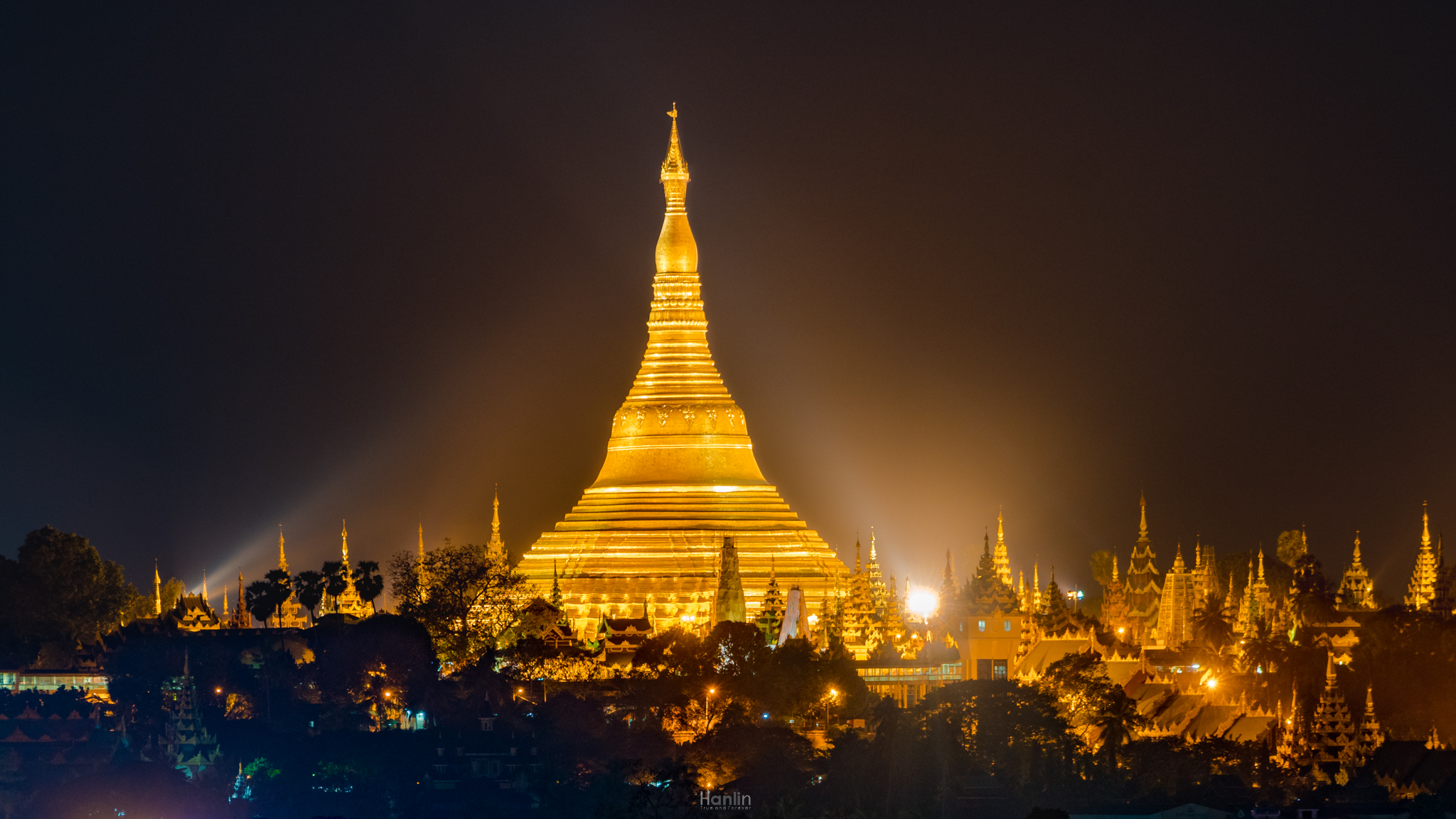


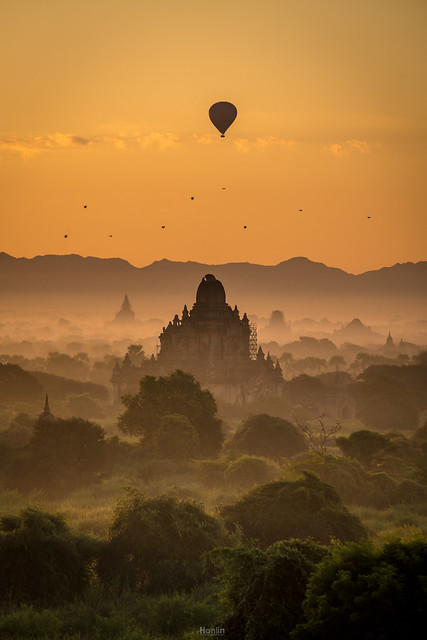
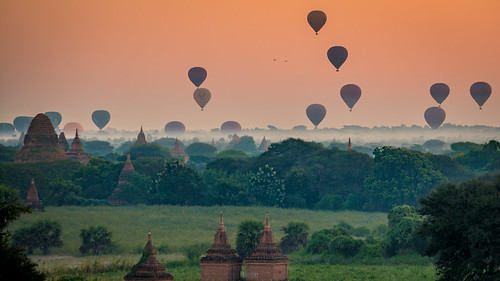

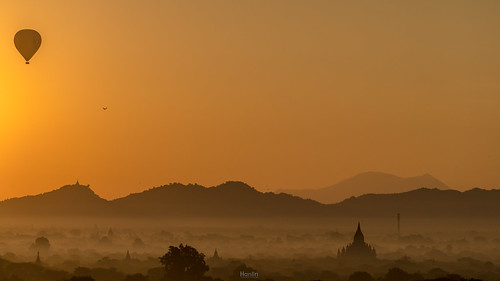







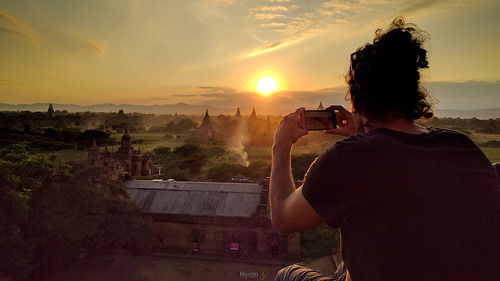
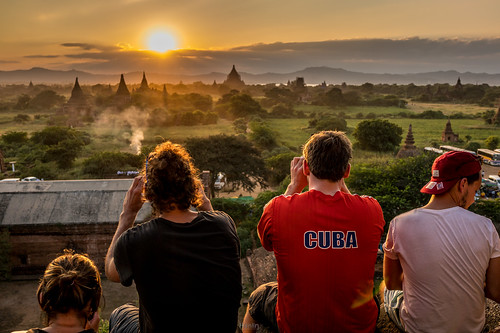



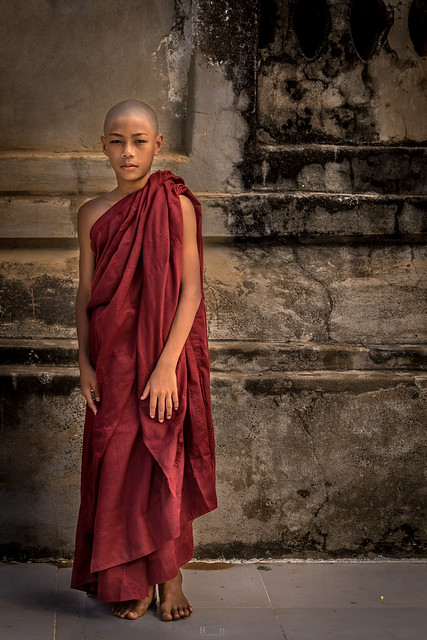
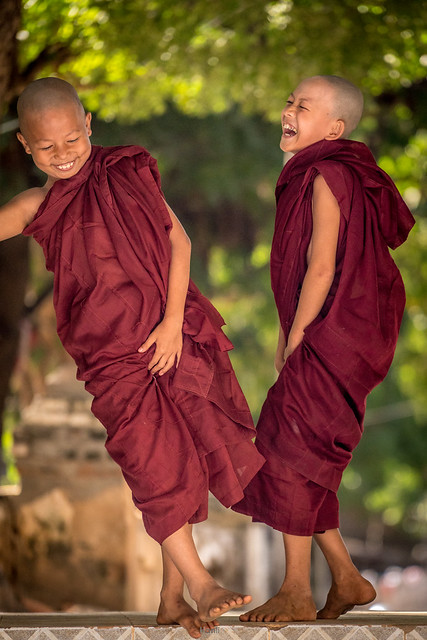
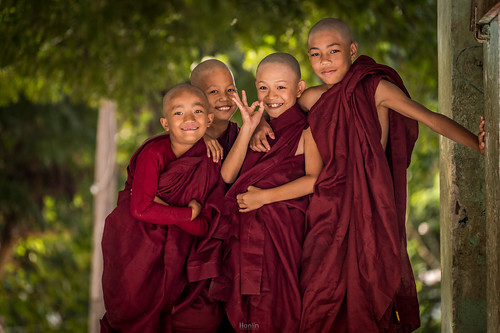

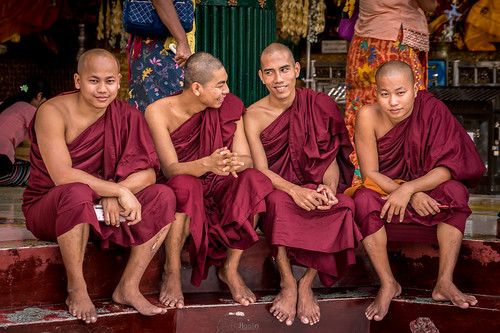

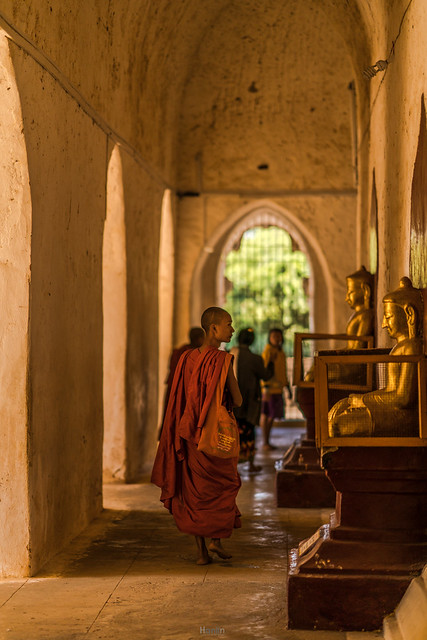
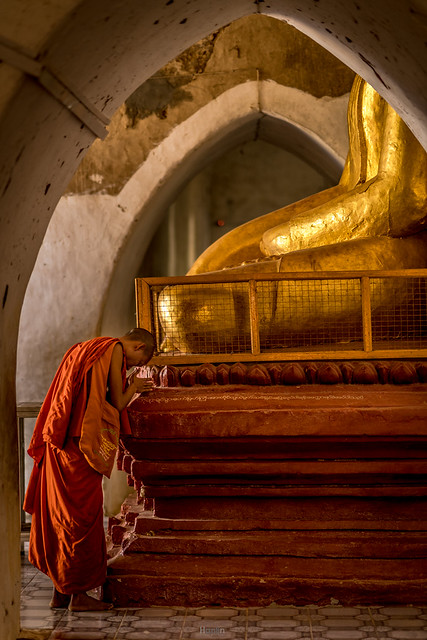
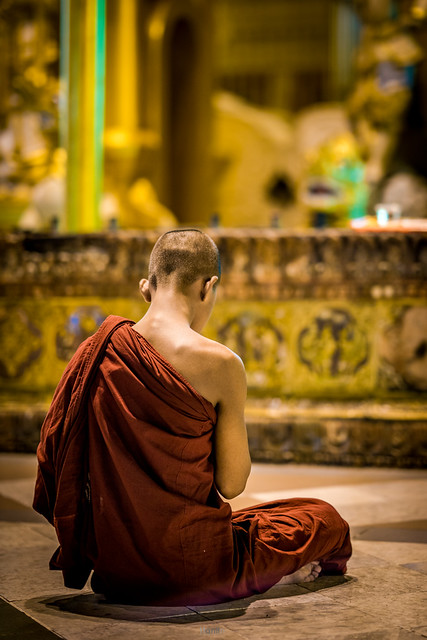
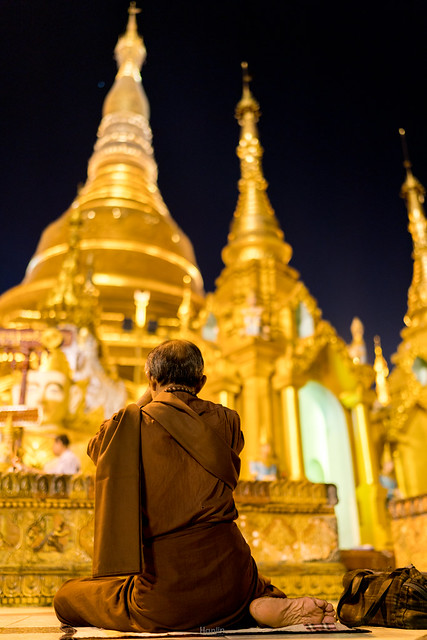

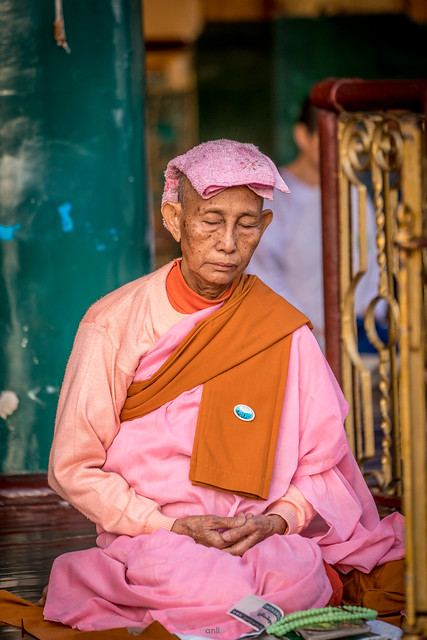
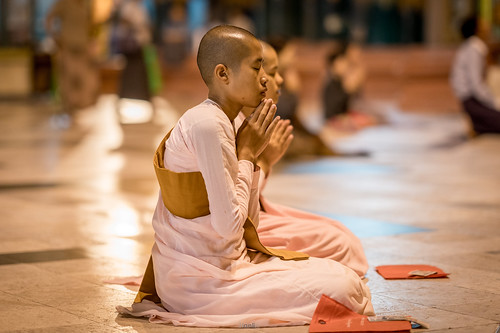
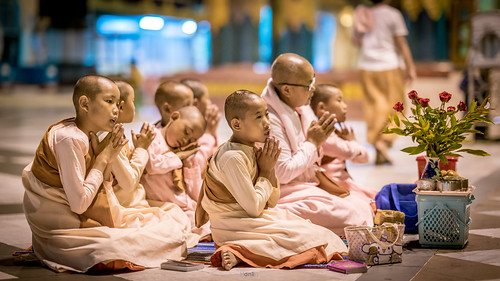
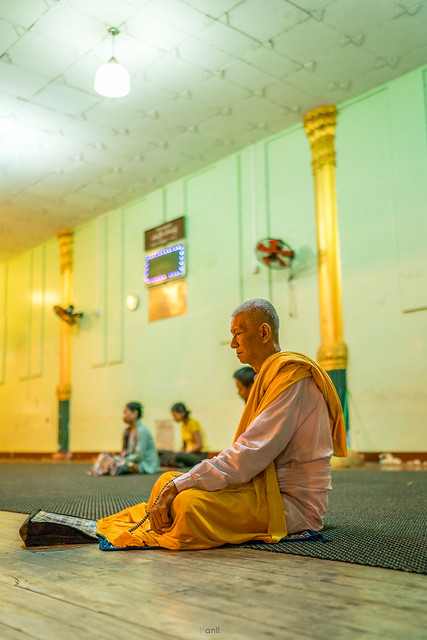

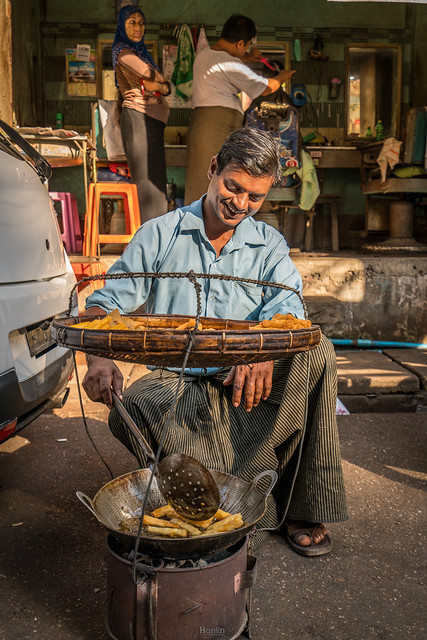
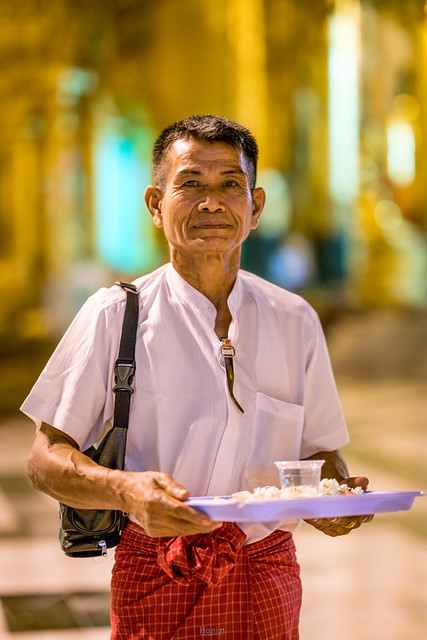

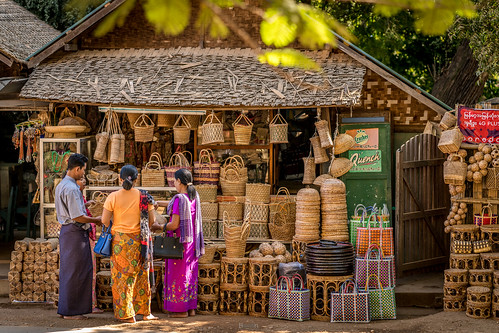
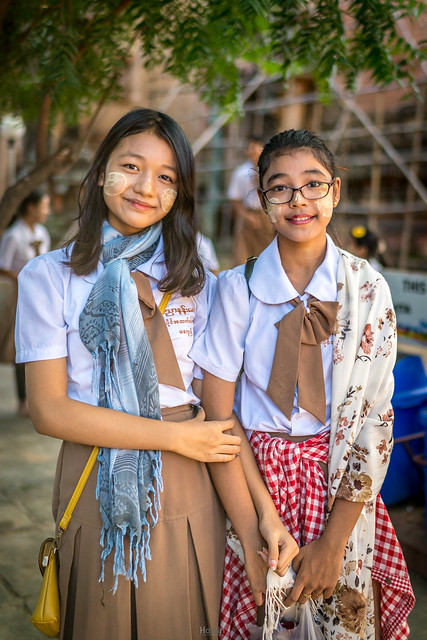
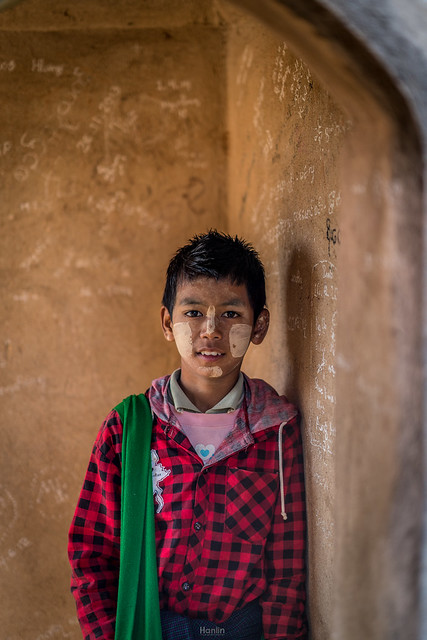
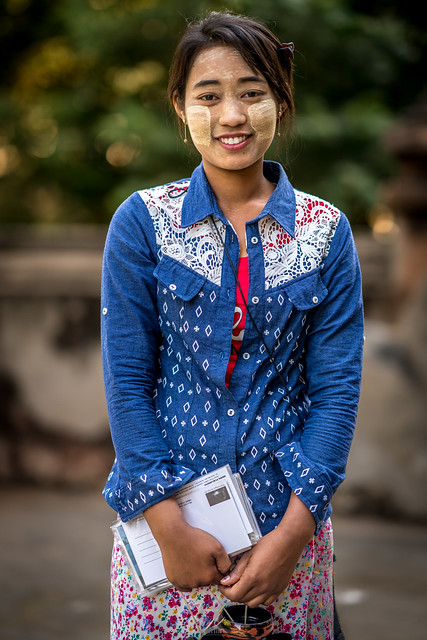
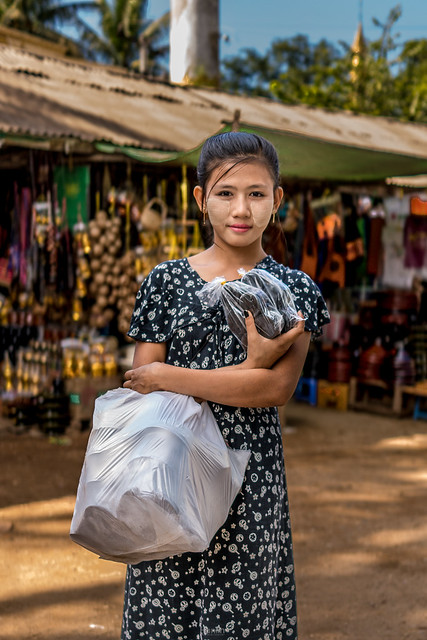

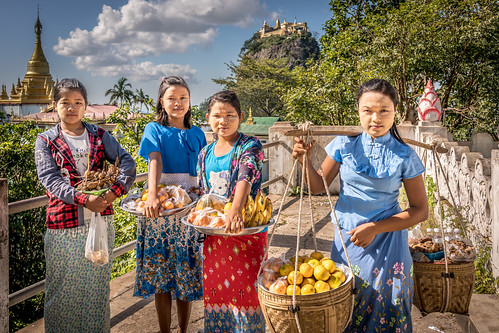
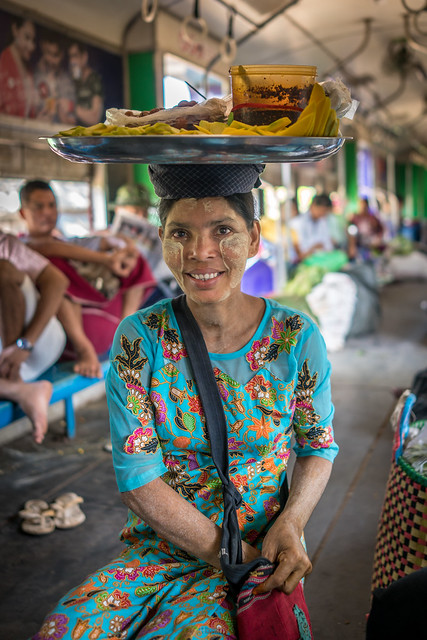
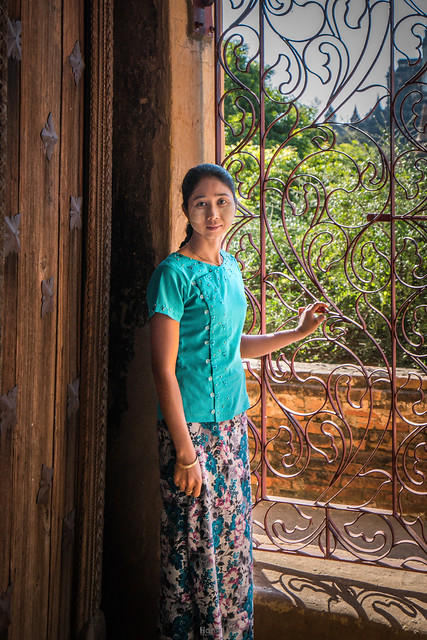

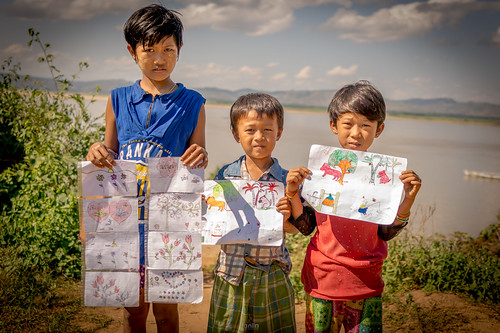
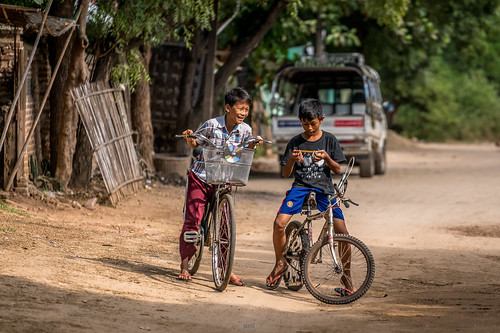
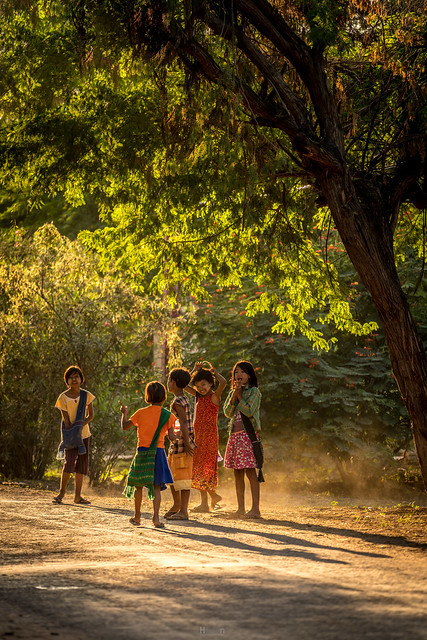
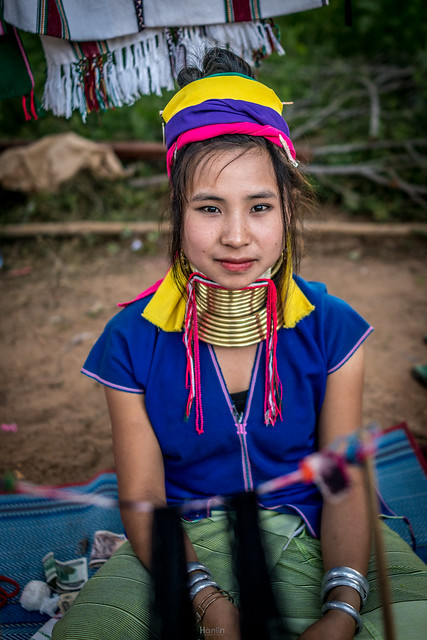

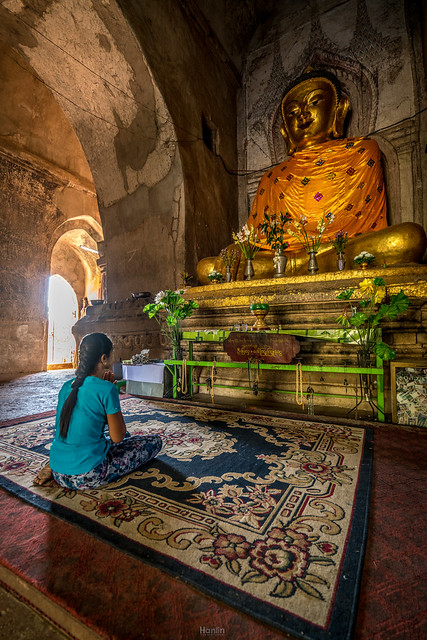


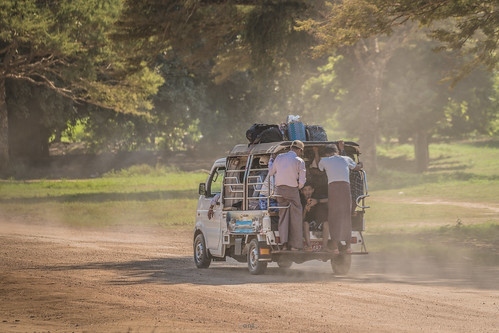







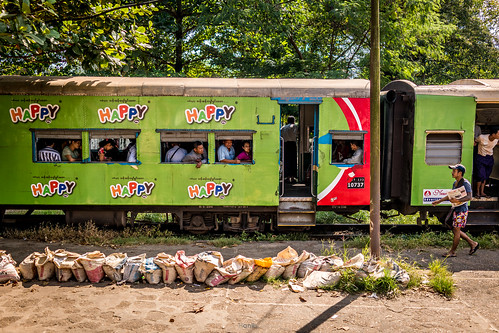
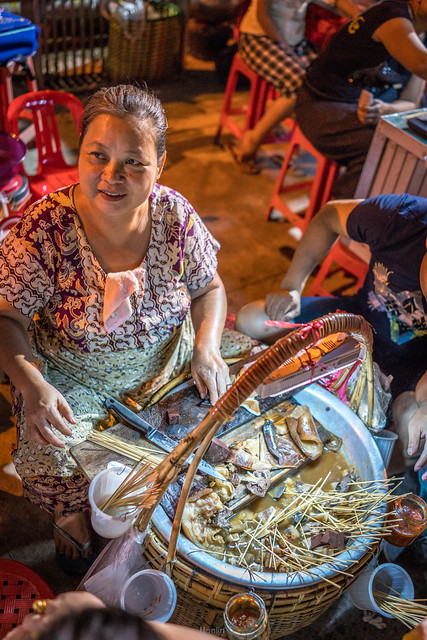
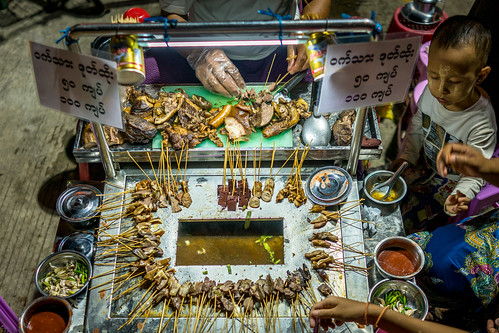

No Comments